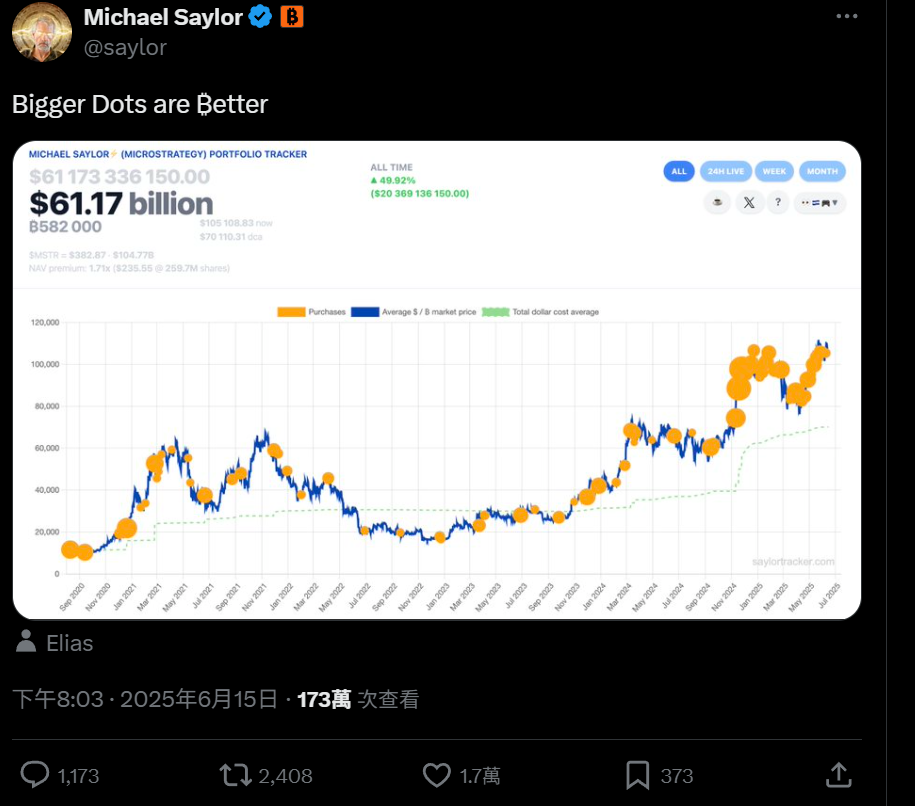After Israel's night raid on Iran on June 13, Brent crude oil soared 10% the next day; Bitcoin instantly dropped below $103,000, but rebounded to $105,000 within 48 hours, with a decline significantly smaller than most Altcoins. At a time when the market was wavering, Strategy CEO Michael Saylor posted a MicroStrategy holdings chart late at night on the 15th, hinting at buying more on Monday's dip.

Corporate Treasury Strategy
Strategy has been writing "buying on dips" into its routine operations since September 2024. Currently, the company holds 582,000 Bitcoins, with unrealized surplus exceeding $2 billion, about 1.5 times its cost. Funding sources include software business cash flow, multiple convertible bonds, stock issuance, and the latest $250 million permanent preferred stock. The tracking website SaylorTracker points out that the company's Bitcoin purchase scale far exceeds its core business revenue, strengthening the "corporate treasury" narrative.
Bitcoin Attracting Funds Against the Trend
In the week the news was announced, Bitcoin ETF still recorded $1.3 billion in net inflows, with the greed index maintained at 60; according to Raoul Pal's data, Bitcoin's correlation with global M2 liquidity reaches 0.89, showing that liquidity is more influential on price than a single conflict. Market analyst Nic Puckrin warns that if Iran blocks the Hormuz Strait, energy supply disruption may trigger a new round of inflation, and liquidity contraction will affect all risk assets, including Bitcoin.







